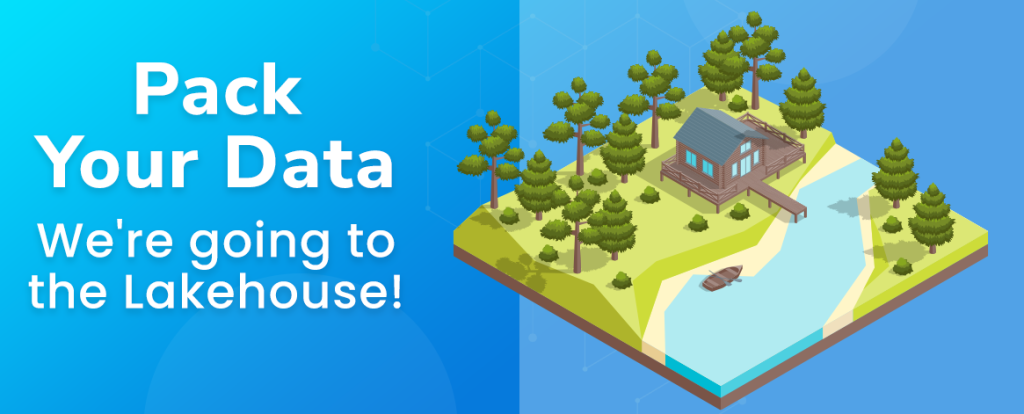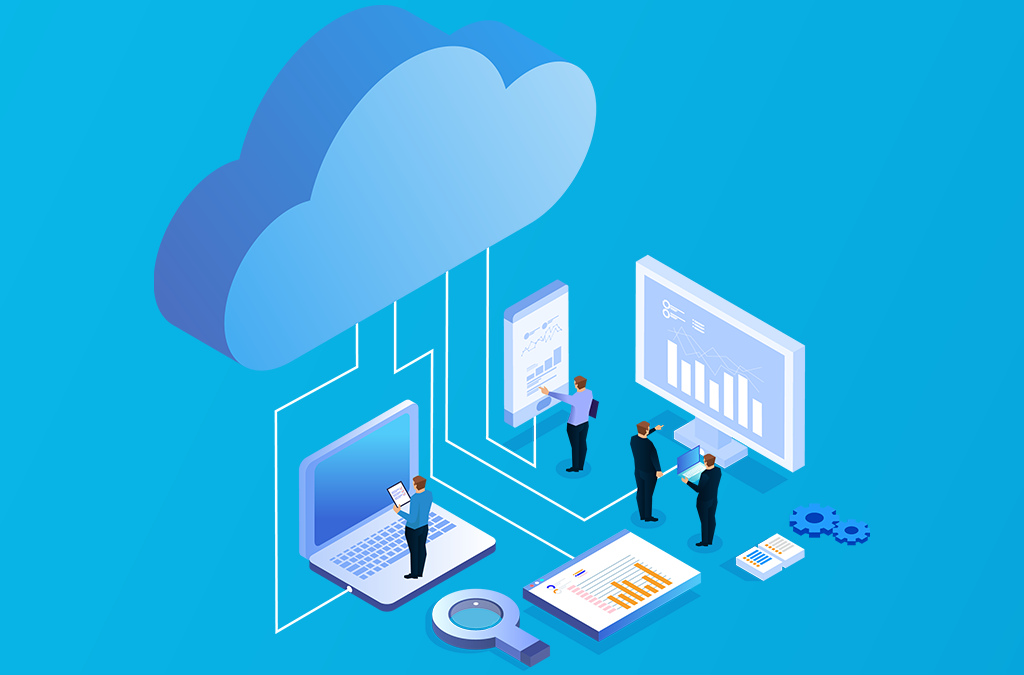The explosion of data in today’s cloud-driven world presents both opportunities and challenges. Businesses need robust solutions to store, process, and analyze this data to gain valuable insights. Here at Sesame Software, we understand the importance of choosing the right data platform for your specific needs.
This blog dives into three prominent data storage options: data warehouses, data lakes, and the emerging data lakehouse. We’ll explore their functionalities, strengths, and weaknesses to help you make an informed decision.
The Structured Haven: Data Warehouses
A data warehouse is a centralized repository designed for structured business data. Think of it as a well-organized library, where information from various sources is meticulously categorized and formatted according to a predefined schema. This structured approach allows for efficient querying and analysis, making data warehouses ideal for:
- Business Analysts and Non-Technical Users: Data warehouses cater to users who need readily available, high-quality data for tasks like generating reports, building dashboards, and creating visualizations.
- Fast Queries and Optimized Performance: The structured nature of data warehouses enables lightning-fast queries and smooth processing, ensuring quick access to valuable insights.

However, data warehouses have limitations:
- Costly for Unstructured Data: Maintaining a data warehouse for vast amounts of raw or unstructured data can be expensive.
- Limited Processing Power: Data warehouses might not be the best fit for complex data processing tasks like machine learning and advanced analytics.
Popular cloud data warehouse solutions include Google BigQuery, Amazon Redshift, Azure SQL Data Warehouse, and Snowflake.
The Unstructured Reservoir: Data Lakes
Data lakes offer a more flexible alternative to data warehouses. They function as a central storage repository for data in its native format – structured, semi-structured, or raw/unstructured. Unlike data warehouses, data lakes employ a “schema-on-read” approach, meaning the structure of the data is determined when it’s accessed, not beforehand. This flexibility allows data lakes to handle:

- Massive Volumes of Data: Data lakes excel at storing vast amounts of data, regardless of its structure, making them ideal for organizations generating massive datasets.
- Machine Learning and Advanced Analytics: Data scientists leverage data lakes to process raw data for tasks like machine learning, user profiling, and predictive analytics.
However, data lakes come with their own challenges:
- Data Quality Issues: The lack of a predefined schema can lead to data quality concerns, requiring additional cleaning and management efforts.
- Query Performance Challenges: Querying unstructured data in a data lake can be complex and time-consuming compared to a structured data warehouse.
Popular data lake storage solutions include Amazon S3, Google Cloud Storage, and Microsoft Azure Data Lake Storage.
The Hybrid Hero: Data Lakehouses
Data lakehouses represent a cutting-edge approach that merges the strengths of data warehouses and data lakes. They offer:
- Structured and Unstructured Data Storage: Like data lakes, data lakehouses can store a variety of data formats.
- Improved Query Performance: Data lakehouses leverage indexing and data compaction techniques to improve query performance over traditional data lakes.
- Schema Support and Data Governance: Data lakehouses offer optional schema definitions and support for ACID transactions, facilitating data governance and regulatory compliance.
- Reduced Data Duplication: Data lakehouses eliminate the need to store processed data in separate systems, minimizing storage costs.

However, data lakehouses are a relatively new technology, and their implementation might require specialized expertise.
Choosing the Right Platform: Sesame Software Can Help
The ideal data storage solution depends on your specific needs. Sesame Software empowers you to navigate this complex decision-making process. We offer a range of data management solutions that seamlessly connect with data warehouses, data lakes, and data lakehouses.
Still Trying To Figure Out Where To Start?
We can help. Schedule a demo of Sesame Software today to discuss how we can help create a unified view of your data by bringing it all to one place with instant connections to on-premise or cloud enterprise applications or databases.


